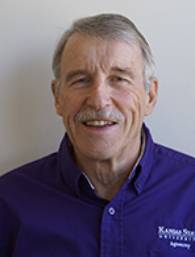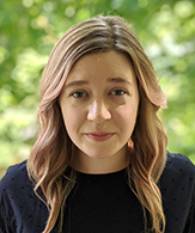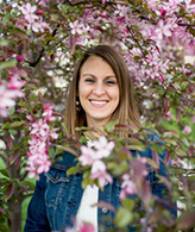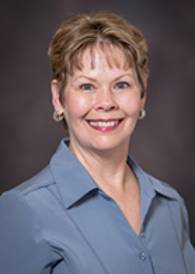Four earn Commerce Bank and W.T. Kemper Foundation awards for undergraduate teaching
MANHATTAN — Excellence in teaching is earning four Kansas State University faculty members the 2021 Commerce Bank and W.T. Kemper Foundation Outstanding Undergraduate Teaching Award.
This year's recipients are Kevin Donnelly, professor of agronomy; Amelia Hicks, associate professor of philosophy; Nicole Meritt, instructor of special education, counseling and student affairs; and Linda Yarrow, instructor of food, nutrition, dietetics and health. They will each receive a $2,500 honorarium from Commerce Bancshares Foundation and the W.T. Kemper Foundation.
"Commerce Bank and the W.T. Kemper Foundation are proud to continue our more than quarter-century tradition of honoring exceptional teaching at Kansas State University," said Shawn Drew, market president and CEO of Commerce Bank, Manhattan. "Our congratulations to this year's winners and their outstanding work in educating K-State students."
All four of this year's winners found ways to be effective teachers despite the challenges caused by the pandemic.
When classes in spring 2020 shifted to remote teaching formats, Donnelly said he struggled with teaching online. His solution for this school year was to do as much in-person teaching as possible.
"I know I am a much more effective teacher in person," Donnelly said. "I split my Crop Science course into two separate lecture sections for both fall and spring semesters and repeated my lectures each day to maximize in-person opportunities. Most of my classes have hands-on labs, and we were fortunate to be able to move our labs to the new Agronomy Learning Center at the North Agronomy Farm to allow us to meet in person."
Along with teaching Crop Science, Donnelly taught Grain Grading, Plant and Seed Identification and Crops Team and was co-instructor of the Agronomy Capstone Experience. He also served as faculty advisor of the Wheat State Agronomy Club, coach of the championship-winning K-State Crops Team and assistant coach of the K-State Weeds Team.
For Hicks, learning how to stay motivated while learning how to teach online was a challenge.
"Before the pandemic, I had never taught an online course and I didn't know how to recapture the energy of an in-person classroom," Hicks said. "To address this challenge, I leaned into my interests with the hope that my enthusiasm for class material would rub off on students. For example, I'm a podcast enthusiast, and so I decided to make supplementary podcasts for some of my courses."
In another course, Philosophy of Gender, she and her students took a deep dive into new research by young scholars, which allowed her to learn new material alongside her students.
This school year, Hicks also taught Introduction to Moral Problems, Business Ethics, Moral Philosophy, and an Independent Study in Business Ethics Pedagogy. Along with earning the Outstanding Undergraduate Teaching Award, Hicks has been promoted to associate professor with tenure.
When the pandemic forced Meritt to switch her courses to Zoom, she wanted to make sure her students received the same quality experience as in the classroom. To do this, she focused on listening to them and implementing strategies and practices that adapted well to Zoom while also supporting the social and emotional struggles her students were facing as a result of the pandemic.
"As a teacher, I was so used to being in the same room as my students and being able to use facial expressions, body language and social interactions to build a rapport with them," Meritt said. "Being on Zoom took away many of those nonverbal interactions. My students and I had to develop different ways of relaying our thoughts, feelings and opinions as we worked to develop relationships with each other virtually. While it’s important that students learn from me, it’s equally important that they learn from each other and that I learn from them."
Meritt teaches Exceptional Child in the Regular Classroom and High-Incidence Practicum. She also is the faculty advisor for a new College of Education student organization, SPEDCATS, which will officially launch in the fall.
To Yarrow, being an effective teacher means getting to know her students and developing relationships with them, something that's easier to do when you can banter before, during and after class. But when her courses had to shift to Zoom, Yarrow found she and her students were holding back.
"To overcome this, I worked on getting to know students in optional Zoom sessions outside of the regular class time," Yarrow said. "I also reached out to students in emails and encouraged them to share what was going on in their lives. Finally, I shared a lot of my experiences, both personal and professional, with the hope that it would help students become comfortable doing the same thing with me."
Yarrow teaches Clinical Nutrition I and Clinical Nutrition 2 for both on-campus and distance learners. She also is on the K-State Faculty Exchange for Teaching, a committee of colleagues from each college on the Manhattan and Polytechnic campuses that creates, promotes and implements professional development opportunities for faculty and graduate students to enhance teaching and learning at K-State.




